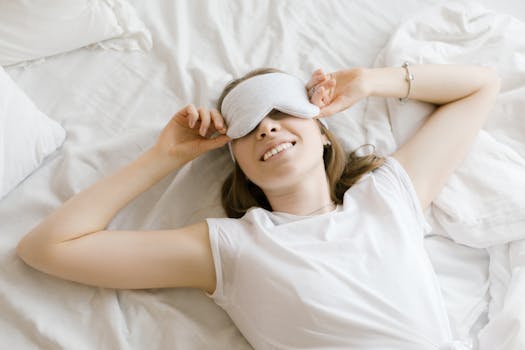
“
Creating a Balanced Sleep Routine for Better Rest
Creating a balanced sleep routine is essential for better rest and improved overall health. A good sleep routine can help you feel refreshed, revitalized, and ready to take on the day. In this article, we will explore the importance of sleep, the benefits of a balanced sleep routine, and provide tips on how to create a sleep routine that works for you.
The Importance of Sleep

Sleep is a vital component of our overall health and wellbeing. During sleep, our body repairs and regenerates damaged cells, builds bone and muscle, and strengthens our immune system. Sleep also helps to improve our mental health, reducing stress and anxiety, and improving our mood. A lack of sleep can have serious consequences, including impaired cognitive function, increased risk of chronic diseases, and a weakened immune system. For more insights on health and wellbeing, check out our article on Breakthroughs in Renewable Energy Technology and Sustainability.
The Benefits of a Balanced Sleep Routine

A balanced sleep routine can have numerous benefits, including:
- Improved sleep quality
- Increased energy levels
- Enhanced mental clarity and focus
- Improved mood
- Reduced stress and anxiety
- Improved overall health and wellbeing
Creating a Balanced Sleep Routine

Creating a balanced sleep routine involves establishing a consistent sleep schedule, creating a sleep-conducive environment, and developing relaxing bedtime habits. Here are some tips to help you create a sleep routine that works for you:
- Establish a consistent sleep schedule: Go to bed and wake up at the same time every day, including weekends.
- Create a sleep-conducive environment: Make your bedroom a sleep haven by ensuring it is dark, quiet, and cool.
- Develop relaxing bedtime habits: Engage in relaxing activities, such as reading or meditation, before bed.
- Avoid stimulating activities before bed: Avoid activities that can interfere with your sleep, such as watching TV or using electronic devices.
- Limit caffeine and nicotine: Avoid consuming caffeine and nicotine close to bedtime, as they can disrupt your sleep.
Additional Tips for a Balanced Sleep Routine

In addition to establishing a consistent sleep schedule, creating a sleep-conducive environment, and developing relaxing bedtime habits, there are several other tips that can help you create a balanced sleep routine. These include:
- Getting regular exercise: Regular exercise can help improve sleep quality, but avoid exercising close to bedtime.
- Practicing stress-reducing techniques: Stress-reducing techniques, such as meditation or deep breathing, can help reduce stress and anxiety, making it easier to fall asleep. For more on managing stress, read our article on The Impact of Climate Change on Global Ecosystems.
- Getting some morning sunlight: Exposure to natural light in the morning helps regulate your circadian rhythms, which can help improve sleep quality.
- Avoiding heavy meals close to bedtime: Eating a heavy meal close to bedtime can disrupt your sleep, so try to finish eating at least 2-3 hours before bedtime.
See more:
https://www.sleepfoundation.org/
https://www.nhlbi.nih.gov/health-topics/sleep-deprivation
https://www.mayoclinic.org/healthy-lifestyle/adult-health/expert-answers/sleep/faq-20402405


